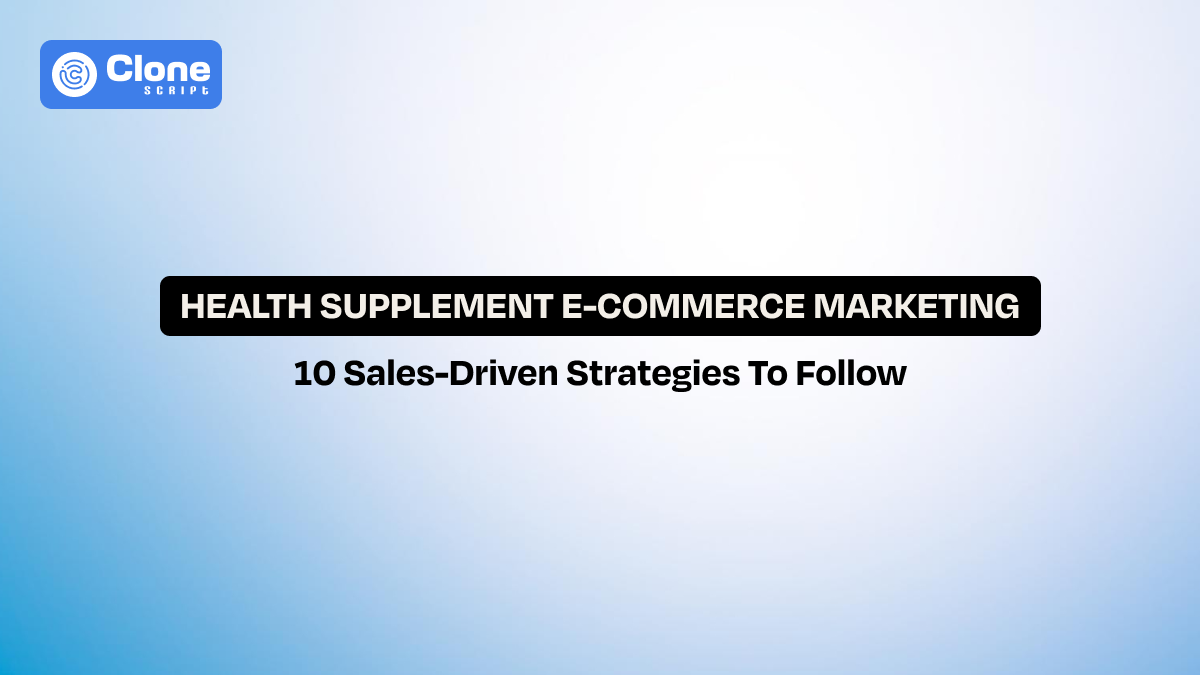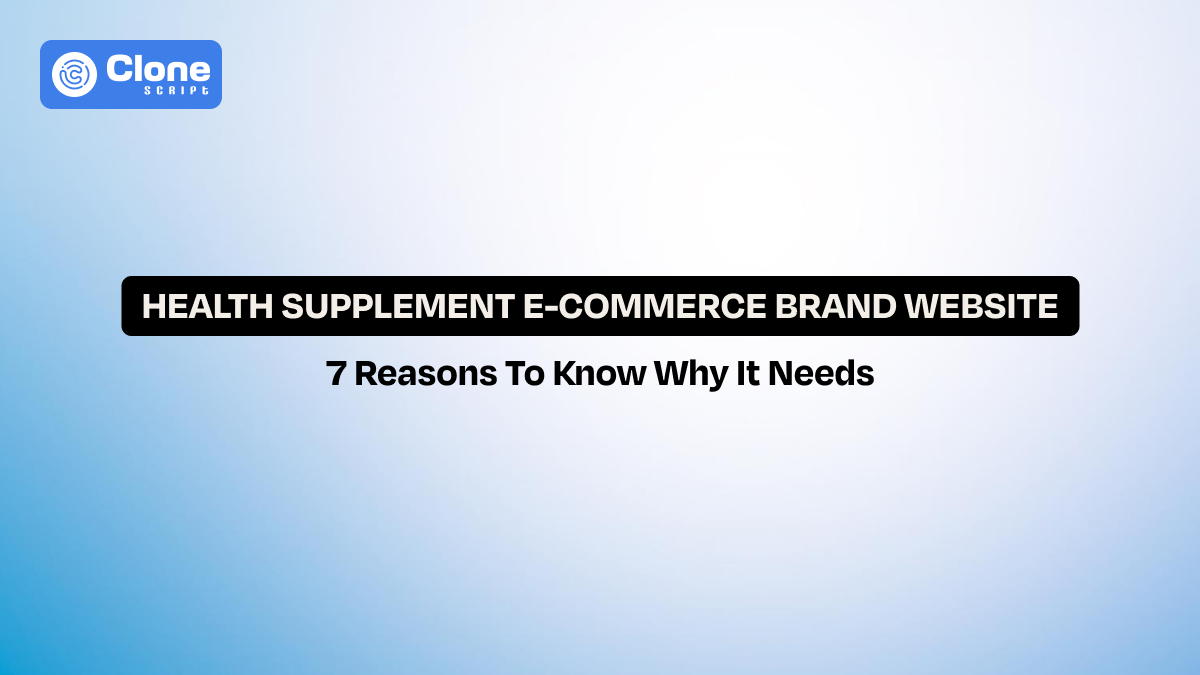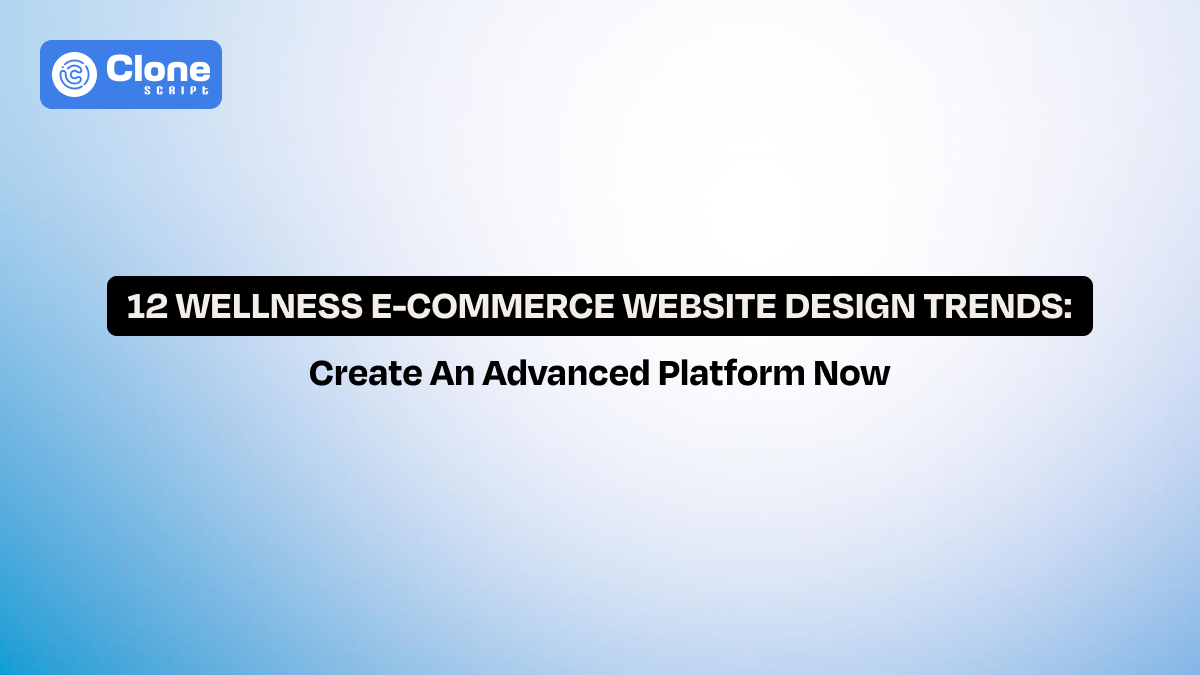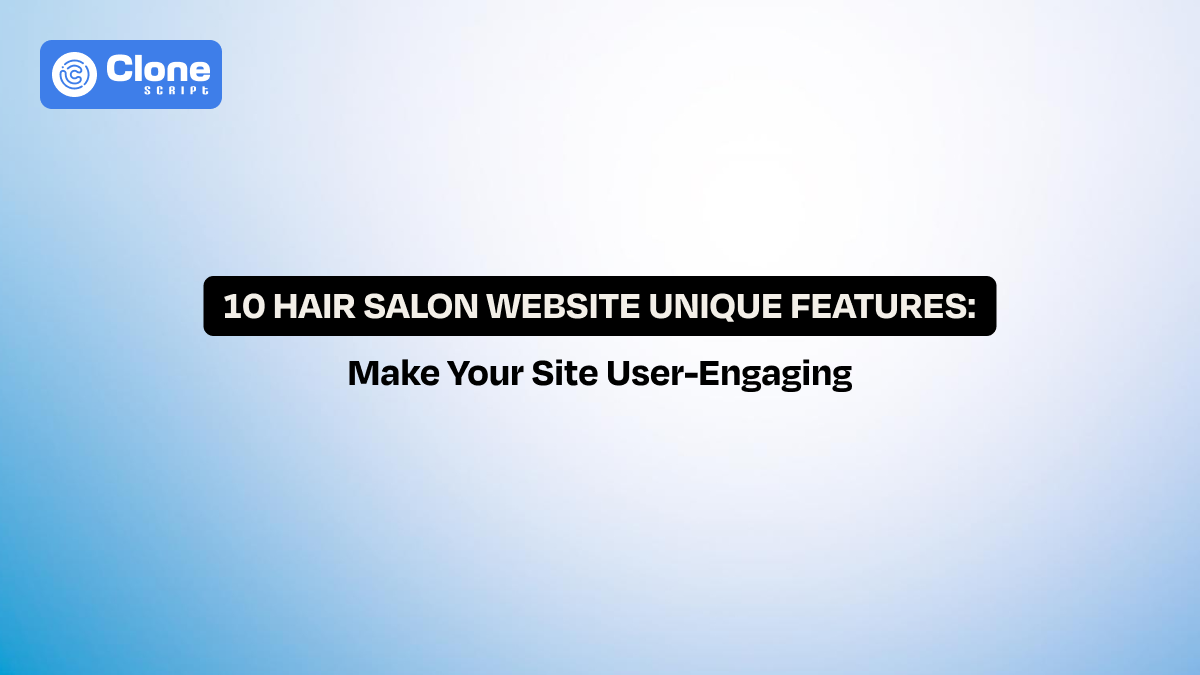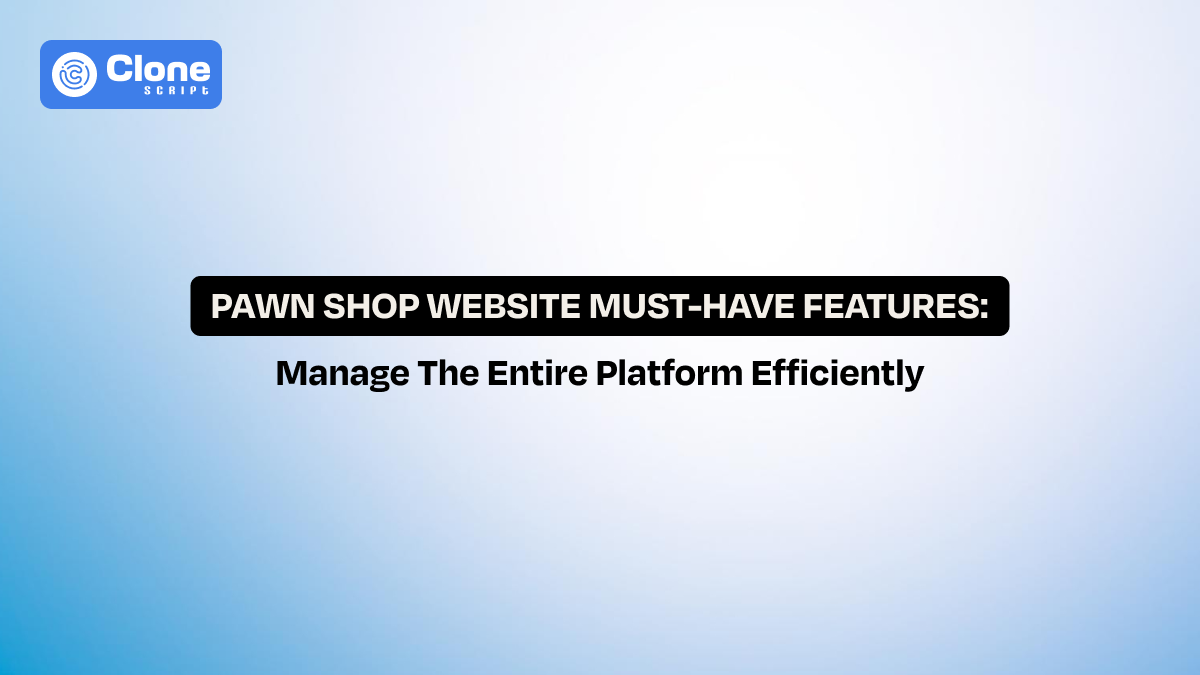10 Proven Marketing Strategies for Health Supplement Websites
It’s a strange fact: despite the supplement market surpassing $250 billion globally, nearly three out of every four health supplement brands fail to achieve consistent online sales.
Not because their formulas lack quality but because their marketing fails to earn trust.
In the world of wellness, trust is currency. And in a digital-first marketplace where skepticism is the norm, your marketing strategy determines whether you become a trusted authority or just another brand lost in the noise.
This is your roadmap to transforming your health supplement website into a trusted, revenue-generating brand platform. It is made from proven, real-world strategies that combine psychology, performance data, and emotional intelligence.
Why Marketing is Important for Health Supplement Websites?
Building a supplement brand isn’t about selling capsules or powders. It’s about selling belief, and belief is earned through connection and credibility.
In an industry where consumers are bombarded with “miracle results” and “instant transformation” claims, a strong marketing foundation helps you differentiate the authentic from the artificial.
Marketing Does Three Critical Things for a Supplement Brand:
-
Builds Visibility – Without proper marketing, even the best formulations stay invisible. SEO, social presence, and storytelling make you discoverable.
-
Builds Trust – Your message, compliance, and consistency communicate reliability and professionalism.
-
Builds Community – Customers don’t just buy supplements; they join wellness movements that represent their goals and values.
A professional website for supplement brand growth doesn’t merely display products; it narrates why they matter and why customers should trust you.
How to Build a Trusted Health Supplement Brand Through Effective Marketing?
Trust isn’t a one-time achievement. It’s a process of consistent authenticity.
Health-conscious consumers today are informed. They research ingredients, demand transparency, and expect accountability. If you want to build trust for a health supplement brand identity, you need to show more than what you sell. You must reveal why and how you sell it.
Here is a checklist to consider for making a trusted business:
1. Lead with Transparency
Share your sourcing, testing, and formulation standards. Highlight third-party certifications like GMP or NSF. When consumers see integrity, they lower their guard.
One thing you have to know: As long as you are clear, the customers will start believing in your products and proceed with the purchase.
2. Humanize Your Brand
Feature your founders, formulators, or brand story. People relate to people, not corporations.
Let your audience see your mission and the “why” behind your products. Supplement brands increase the customer base only when they are represented in reality with the experience and stories featured on the website.
3. Comply with Confidence
When selling health-related products online through a website, you have to follow the compliance. Avoid exaggerated and unrealistic claims. Instead, educate your visitors with scientifically validated insights. Compliance isn’t restrictive, but it’s reassuring.
4. Maintain Consistency
Through health supplement e-commerce website design trends, use brand colors, fonts, and tone across your emails and social media. With this kind of familiarity, it improves the buyer's confidence in the brand, and they will complete the action, like contact and purchase.
5. Educate, Don’t Just Sell
When your website becomes a trusted resource for wellness education, your products sell themselves. For that, you have to make helpful, relevant, and engaging content that relates to buyers’ requirements.
Building trust is the foundation of sustainable supplement eCommerce growth, not quick wins.
10 Proven Marketing Strategies for Health Supplement Websites
Let’s break down ten practical, proven strategies that will transform your health supplement brand into an authority and accelerate your direct-to-consumer supplement sales.
1. Build a Strong and Trustworthy Brand Image
First impressions are always enough to judge what the brand is. Your brand image is the silent salesman of your online business.
A credible professional website for a supplement brand should feature:
-
High-quality product images that look clinical yet aspirational. Don’t try to get stock images from the web. The way you represent the products in their original condition will make the trust.
-
Clean design and intuitive navigation to instill professionalism. Cluttered and confusing website, not getting conversions due to the absence of e-commerce user experience measurement.
-
Certifications and partnerships are displayed prominently. Once the user sees these elements on your site, they will start to recognize and consider buying supplement products from you over others.
In short, avoid the cluttered “hard-sell” look. In wellness, simplicity equals credibility. Your design should feel safe, soothing, and science-backed.
Tip: Include a “Meet the Experts” section to showcase medical advisors or certified nutritionists associated with your products. That adds an extra layer of trust.
2. Optimize for SEO to Increase Organic Visibility
Don’t think that search engine optimization is limited to FMCG and fashion products. But, in the health and wellness industry, it’s also an important part of a marketing strategy.
The fact is that you have to implement the best practices, and the result will be in your favor.
Organic search is the highest-converting channel in supplement marketing because consumers actively seek reliable solutions.
The question is how to use SEO for a health supplement e-commerce business effectively.
Here’s the solution.
-
Research and target intent-driven keywords like “best protein powder for muscle gain,” “powder for weight gain,” or “whey protein powder 5kg.” These queries have higher conversion rates and should be included on the entire website.
-
Create educational pages optimized for long-tail keywords (“best immune-boosting supplements for athletes”). Invest in professional web copywriting to convince customers.
-
Add structured data and alt tags for images. The structured data will help the products to rank with rich snippets like price, stock status, return delivery, etc. The alt text on the images keeps accessibility flexible.
-
Build backlinks from credible health publications. Keep prioritizing high-quality backlinks that signal the authority of the content and raise your product rankings.
SEO not only improves visibility. It strengthens authority. When customers find your brand organically, they inherently trust it more.
3. Create Educational Content That Builds Authority
Today’s buyer doesn’t just want to purchase, but they want to understand what they’re buying.
Educational content establishes expertise and forms a lasting relationship between your brand and your audience. Think beyond writing a blog post:
-
Write deep-dive articles about your ingredients. These types of content will help the customers to know how they can consume the products for better results and avoid issues.
-
Publish whitepapers or eBooks about wellness trends. To prove the authority of your supplement products, sourcing and manufacturing cycle details will help to judge.
-
Produce short videos on supplement usage and benefits. Adding these visual elements to the website and sharing on social media will bring traffic in terms of conversions.
In short, explain how supplements work, who they’re for, and how to integrate them safely. When you help your audience with knowledge, you convert curiosity into confidence.
4. Use Influencer and Affiliate Partnerships Strategically
Since social media has become an integral part of buying anything online, one marketing strategy becomes important: Influencer collaboration.
But why use this method ahead of search optimization for organic position? The reason is simple: influencers already have an audience and a recognizable face. SEO takes time.
Also, influencers have become modern-day trust brokers. But success here depends on authenticity, not follower count.
Look for micro-influencers (10K–100K followers) in fitness, wellness, and nutrition niches who:
-
They actually use your product. They will share their experience by clarifying the pros and cons along with the right way of usage.
-
They can demonstrate real results. By showcasing the before and after posture by using your product will create trust in customers’ minds.
-
They are known for transparency. Having a real face in front of the customers can’t hesitate to choose your supplements.
Also, implement an affiliate marketing program that rewards genuine promotion, not pushy sales. The combination of social proof and storytelling turns awareness into measurable revenue.
5. Leverage Email and SMS Marketing to Nurture Relationships
Your email list is your digital goldmine.
Why?
An intelligent email and SMS marketing strategy helps you build loyalty, educate your audience, and increase repeat purchases.
All these goals define the success of e-commerce conversions.
Here’s how to run email marketing campaigns along with SMS:
-
Welcome sequences: Introduce your brand’s mission and values. This is the foundation stage where customers will be informed about the business.
-
Product education series: Help users understand ingredients, dosages, and benefits. After customers make a successful purchase, you have to send them the best use case for the expected results.
-
Personalized offers: Suggest bundles based on past purchases. This stage is helpful for retaining customers by showcasing their favorite products ready for purchase, along with secondary products.
-
Replenishment reminders: Encourage reorders before customers run out. If customers abandon the cart due to a stock outage or the absence of discounts. Send emails and SMS with the reminders with refilled stock and an extra discount at checkout.
Done right, your emails shouldn’t feel like ads. They should feel like advice from a trusted wellness expert.
6. Run Paid Ads with Targeted, Empathetic Messaging
It’s a fact: depending only on organic effort to make your e-commerce site rank on Google will take time. But you need conversions, right?
Paid advertising can be a game-changer, but only if you approach it with precision and empathy.
Don’t target everyone. Target those who truly need what you offer. Build audience personas and use emotional triggers to craft your messaging:
-
“Feel your best naturally.”
-
“Science-backed supplements you can trust.”
-
“Transform your wellness routine safely.”
There are two types of platforms you can use for PPC Ads:
-
Web Advertising: Google Ads, Bing Ads, and Yahoo Ads
-
Social Advertising: Meta (Instagram, Facebook), Pinterest, Reddit, LinkedIn, YouTube
Pick the relevant one as per your business goals.
Drive traffic to optimized landing pages, not your homepage. So, users see exactly what they searched for. This is the magic of digital advertising that brings qualified leads without wasting a moment.
Understand that continuity between ad copywriting and landing page boosts conversion rates significantly.
7. Offer Subscription and Bundle Deals for Retention
In an online business, retention is more profitable than acquisition. Customers who subscribe or bundle the products typically spend 30–40% more over time.
Your supplement brand has to implement subscription marketing. Here are the reasons why it can be important.
-
The monthly subscription supplements site deals with auto-renewal discounts. This means if a customer wants to extend their subscription, they are entitled to take advantage of rewards and discounts.
-
Personalized bundle recommendations (“Energy + Focus + Recovery” packs). Customers tend to purchase supplements online in a compact manner; the bundle offering will improve cross-selling.
-
Member perks like early access to launches or free shipping. To improve average order value (AOV) on your e-commerce website, implementing this strategy will bring results.
These tactics improve revenue predictability and reinforce customer loyalty. Plus, it positions your brand as a trusted part of their daily wellness routine.
8. Collect and Display Real Reviews and Testimonials
Nothing builds supplement website trust faster than authentic social proof.
But how?
Do only SEO work or influencer partnership work? No.
To be a trustworthy brand in your industry, you have to earn honest reviews from customers.
Ask every buyer for feedback, then proudly display it.
Mix text reviews with real photos or video testimonials. Verified results from genuine customers outperform any marketing copy.
Encourage your audience to share transformation stories on social media using branded hashtags. The more transparent you are, the more emotionally connected your audience becomes.
9. Use Social Media to Educate, Engage, and Humanize
Social media isn’t just a billboard and entertaining platform. It can become your community hub.
Implement a strategy for social media marketing:
-
Share your journey.
-
Post educational content.
-
Reply personally to comments.
-
Highlight real customer stories.
Here’s a glimpse of famous social media platforms to use:
-
Instagram and TikTok are ideal for short-form videos explaining supplement benefits.
-
LinkedIn works well for thought leadership and B2B collaborations.
-
Reddit and X a very useful platforms to build a community for your brand.
-
YouTube can be a perfect option to share a well-researched and usage way sharing video.
-
Facebook brings a genuinely interesting audience to introduce your brand.
Social media builds the emotional bridge between brand and buyer. It’s where trust turns into loyalty.
10. Track Data and Refine Your Strategy Continuously
Great marketing is iterative and has to be data-driven. What worked last quarter might not work today. So, a rigid strategy will put everything down, and coming out of there is challenging.
But with a measurement of the Key Performance Indicators (KPIs) will clarify where the change is required. Use analytics to evaluate:
-
Conversion rates by traffic source. If organic search has better conversions than paid ads, then stop the advertising campaign for now.
-
Customer lifetime value (LTV). This metric calculates how much the brand has to earn from the customer during the entire period of engaging with the business.
-
Engagement rates across campaigns. This measures what campaigns are convincing for users to stay on your site. If email and SMS are working better, then spending on social media has low engagement and to be stopped.
-
Keyword rankings and SEO improvements. Organic website traffic is measured by the rankings in the top positions on the search results and by converting leads into orders.
The fundamental is clear: Adjust. Experiment. Optimize.
The brands that are successful aren’t the biggest. They’re the ones that adapt the fastest. Data isn’t just numbers; it’s your brand’s compass for smarter growth.
AllClone Script’s Marketing Solution for Health Supplement Businesses
Executing all these strategies alone can be overwhelming. That’s why AllClone Script’s Digital Marketing Consultancy offers a specialized 1-hour strategy session tailored specifically for health supplement brands.
Their experts provide actionable insights on:
-
SEO and content strategy for supplement sites.
-
Conversion-focused ad campaigns.
-
Email and funnel optimization.
-
Compliance-safe messaging.
If you’re serious about scaling your direct-to-consumer supplement sales, this is the kind of focused expertise that delivers measurable growth.
Conclusion: From Brand to Belief
The modern supplement market isn’t a race for attention. It’s a competition for trust.
A powerful health supplement website is more than a storefront. It’s an experience, a place where credibility meets compassion, and commerce meets education.
By applying these strategies, your brand can transcend the typical sales-driven model and build a loyal community grounded in belief and results.
Because at the end of the day, the most successful supplement companies aren’t just selling health products, they’re promoting health confidence.
Your next chapter of growth starts not with another ad campaign, but with a strategy rooted in trust, clarity, and care.
FAQs
-
How can I increase conversion rates on my health supplement website?
To increase conversions, simplify your website design, use trust badges and clear CTAs, offer limited-time discounts, and feature authentic before-and-after reviews. A/B testing product pages and checkout flows can also reveal what motivates your visitors to purchase.
-
How can I differentiate my supplement brand from competitors?
Differentiate through quality assurance, storytelling, personalized product recommendations, and expert-backed content. Highlight what makes your brand unique, your sourcing, formulations, or mission.
-
My e-commerce site's goal is to drive sales. Which platform would be prioritized?
Google Ads is a more prominent choice to prioritize for driving sales directly to the website. Creating the campaigns, building an audience segment, and bidding for the keywords strategically gives the top position on the search results.
-
What role does packaging play in supplement marketing?
Packaging is often your first physical brand impression. Sustainable, clean, and informative packaging conveys professionalism and trust, important for wellness products that rely on perceived purity and safety.
-
How often should I update my supplement website content?
Update your blogs, product descriptions, and visuals quarterly. Fresh content signals credibility to search engines and helps you stay relevant with changing health trends and compliance guidelines.
 BTC - Bitcoin
BTC - Bitcoin
 USDTERC20 - USDT ERC20
USDTERC20 - USDT ERC20
 ETH - Ethereum
ETH - Ethereum
 BNB - Binance
BNB - Binance
 BCH - Bitcoin Cash
BCH - Bitcoin Cash
 DOGE - Dogecoin
DOGE - Dogecoin
 TRX - TRON
TRX - TRON
 USDTTRC20 - USD TRC20
USDTTRC20 - USD TRC20
 LTC - LiteCoin
LTC - LiteCoin

